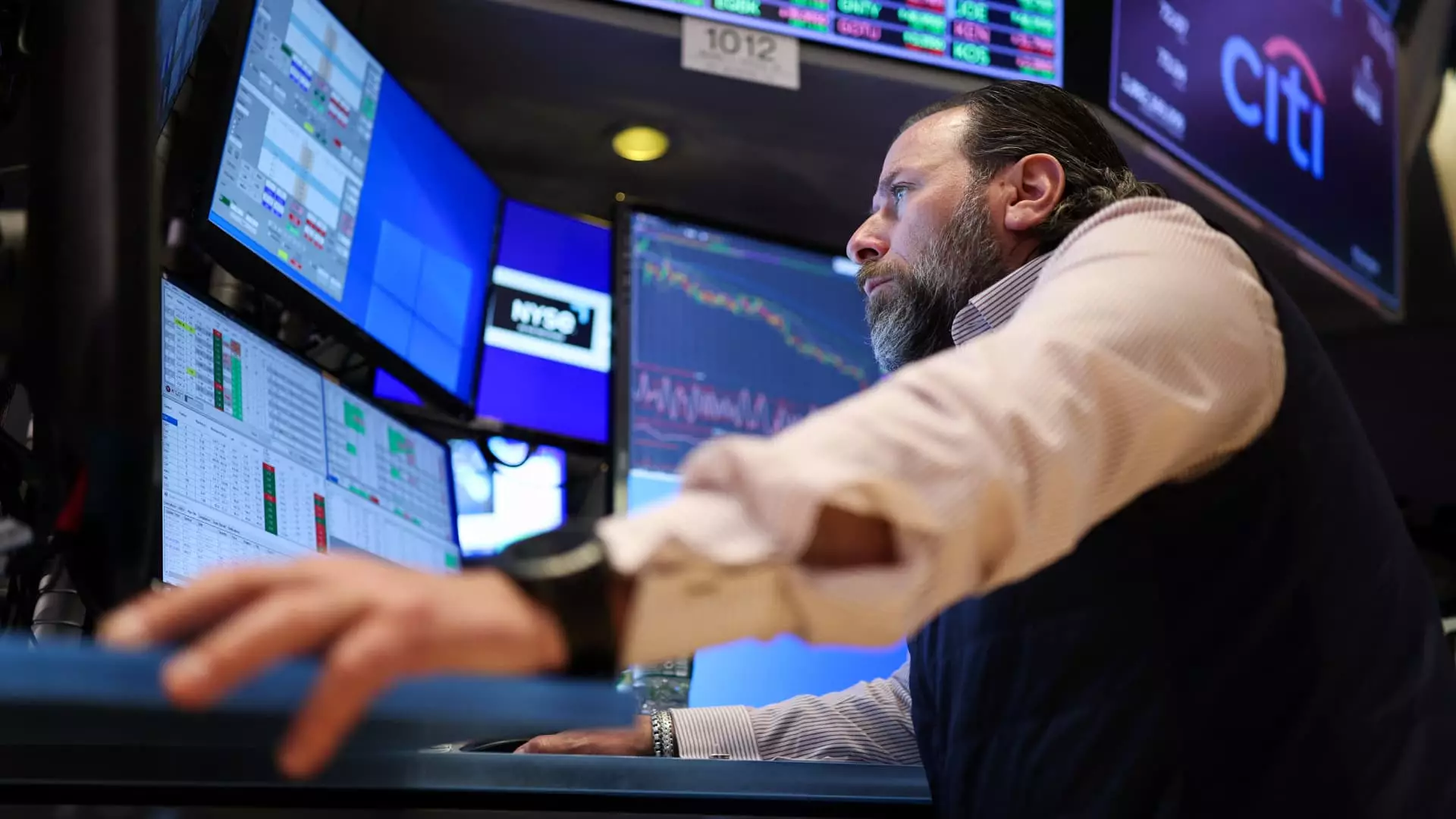As economic clouds loom over consumer spending, Dollar General appears to be navigating the choppy waters with surprising success. Navigating through turbulent waters often uncovers the unexpected: a portfolio that includes disfavored discount retailers might just be a wiser choice. With Dollar General’s stock gaining over 13% in 2025, strategists like Gina Sanchez highlight an intriguing trend where consumers gravitate toward value over luxury as the economy weakens. In a conservative financial climate, it seems logical that investors would flock to companies that cater to budget-conscious shoppers. The stock’s impressive uptick is a testament to an inherent resilience in discount chains, which thrive on people’s innate desire to cut back on spending during tough times.
This phenomenon is more than just numbers; it reflects a cultural shift. With consumers growing wary of inflation and the ongoing tariff issues, the majority will reach for the more affordable options. Dollar General represents more than a stock; it embodies the psychology of frugality, a reaction to a faltering economy where every dollar counts. Notably, Sanchez pointed out that investors should brace themselves for defensive trading, especially as the fragile economic climate may lead to even greater reliance on budget retailers. After all, wisdom dictates that amid uncertainty, the prudent course always lies in prioritizing value. In this role, Dollar General has not just managed to stay afloat, but has thrived.
The Fall of Affluent Retail: How Lululemon is Losing Its Luster
Contrasting sharply with Dollar General’s gains, Lululemon’s shares have taken a dive, down 25% in 2025 alone. This decline illustrates the risks inherent in luxury retail amidst an uncertain economic backdrop. Beyond financial numbers is a narrative rooted in relativity: as dollars shrink in value, luxury goods often become superfluous expenditures. The recent decline signals an essential truth about consumer behaviors: when faced with economic uncertainty, shoppers will pull back from luxury options, and Lululemon proves to be a victim of this reduction in discretionary spending.
Even as Lululemon struggles with lagging store traffic and slack consumer interest, its attempts to expand into international markets like Italy and Turkey may indicate a strategy fueled more by hope than a solid plan for recovery. Current fears are valid; expanding into markets where brand recognition is minimal while the home base is threatened seems like a high-stakes gamble that could result in further losses. Sanchez echoes a sentiment shared by many investors: cautious optimism. While Lululemon has the potential to bounce back, the path isn’t smooth, particularly given the broader economic terrain. In essence, the brand must rethink its high-end allure amidst changing consumer habits.
Oracle’s Evolving Landscape: More Than Just Cuts
In the ever-evolving landscape of tech stocks, Oracle stands at a crossroads. Like Lululemon, its shares have faced a sharp decline, down nearly 16% in 2025, exacerbated by recent decisions from the Defense Department to cut its usage of Oracle software. This is a critical point; while it may seem that Oracle is under siege, the narrative is more nuanced. The weight of economic forecast doesn’t solely reside on immediate pressures, for the tech giant has room for recovery, especially fortified by burgeoning sectors like artificial intelligence.
Unlike Lululemon, which is clinging to its premium positioning during a downturn, Oracle has a broader canvas. Sanchez believes there’s a “secular story” of growth backed by favorable projections from AI advancements. In a sense, Oracle might provide a safety net that more conventional luxury stocks, like Lululemon, cannot offer right now. By navigating through the waves of adversity, Oracle could re-emerge with renewed vigor – its future tied less to today’s struggles and more to the visionary tech landscapes of tomorrow. In this context, Oracle’s perceived risks could translate into hidden opportunities for long-term investors who can see past the immediate challenges.
Shifting Focus: The Strategic Future Ahead
As we look at the emerging financial landscape, it’s evident that while economic pressure mounts, a recalibration is essential. The market is poised for shifts, especially toward companies embodying resilience in face of adversity. Stocks like Dollar General symbolize a defensive play in a turbulent market climate; they serve as a beacon for strategic investment decisions that embrace thrift over luxury. Lesser-known discount retailers may very well outperform their trendier counterparts like Lululemon, especially when economic winds blow cold.
Meanwhile, intuitive long-term plays, as in the case of Oracle, underscore the need for investors to think beyond the commonplace narratives. While the immediate forecast seems bleak, savvy investors may be looking past these hurdles and into a future fueled by innovation and affordability. What remains paramount is a selective approach to stock choices, which can lead to enriched portfolios even in these unconventional times.

